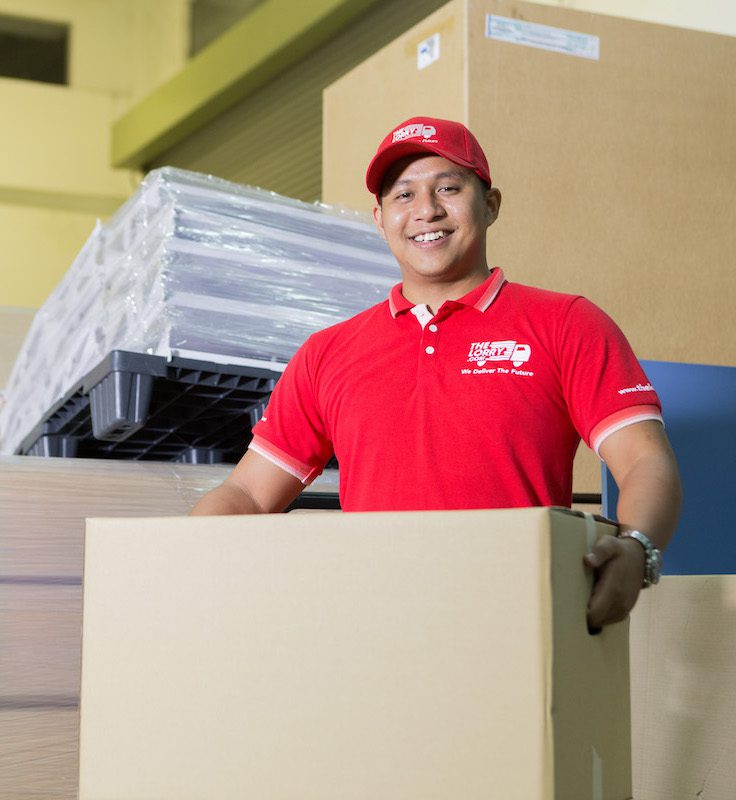
by TheLorry on 27 August 2025.
You’ve got an old sofa, a broken office chair, or a pile of clutter sitting in your storeroom. It’s bulky, it’s heavy, and you don’t know where to start.
And you’re not alone—Malaysians generate 38,000 tonnes of waste daily, a number projected to rise to 40,700 tonnes by 2030 (The Star, 2023). With so much waste piling up, disposing of bulky items responsibly isn’t just about convenience—it’s about keeping our homes, offices, and cities livable.
This guide will walk you through practical disposal options in Malaysia, common mistakes to avoid, and eco-friendly alternatives that give your old items a second life.
Why Disposal Feels Harder Than It Should
Disposing of bulky items feels harder than it should for two big reasons:
-
Emotional barriers: Many of us struggle with “sayang nak buang”—items hold sentimental value, or we worry we might need them later. This often leads to hoarding. In fact, mental health experts in Malaysia have linked hoarding behavior to stress and anxiety (CariGold Forum, 2021).
-
Practical barriers: Regular rubbish collection doesn’t cover furniture or renovation debris. Moving a bulky sofa or office desk isn’t just inconvenient—it’s exhausting without help.

As one Malaysian, Gee Zie, shared on Facebook:
“Kalau dah setahun tak pernah guna barang-barang tu, elok ler sedekah, buang atau hantar tempat pengumpulan barang terpakai. Percayalah makin takde barang dalam rumah, makin lapang rumah, kurang habuk, senang nak kemas, tak penat, makin tenang dan ceria.”
This highlights how decluttering isn’t just about space—it’s about peace of mind and emotional wellbeing.
The Real Cost of Wrong Disposal
If you think tossing bulky items anywhere is harmless, think again.
-
Legal fines: Local councils can issue fines up to RM500–RM1,000 for illegal dumping (MBPJ Guidelines).
-
Hidden office risks: Discarded electronics and office equipment may contain sensitive data. Improper disposal = potential data leaks.
-
Environmental toll: Malaysia’s recycling rate is just 33.17%—still short of the 40% national target for 2025 (NST, 2023). Dumping usable furniture in landfills wastes resources and space.
💡 In short: wrong disposal costs money, risks reputations, and hurts the environment.
What Services Actually Exist in Malaysia?
Here’s where things get confusing. Different services exist, but most people don’t know which accepts what.
| Service Type | Examples | Best For | Notes |
|---|---|---|---|
| Municipal Services | KDEB RORO bins (Selangor) | Bulky items, renovation debris | Free once per year; fees apply for extra requests (KDEB WM) |
| Charity / NGO Options | Tzu Chi (furniture & e-waste), Kloth bins (textiles) | Still-usable items | Items are repaired, recycled, or given to families in need (Tzu Chi Malaysia) |
| Commercial Services | TheLorry, Cash Converters | Bulky items, resaleable goods | TheLorry offers licensed disposal with manpower; Cash Converters buys usable items (TheLorry) |
⚠️ Important: Not all services accept renovation waste, garbage, or religious items. Always check the fine print.
How to Choose the Right Disposal Method
Think of disposal as a decision tree:
-
Still usable? → Donate (FB “Beli Nothing” groups, NGOs) or resell (Cash Converters, Carousell).
-
Broken beyond repair? → Disposal service like TheLorry or KDEB bins.
-
Electronics? → E-waste recycling centers (e.g., Ecocycle Malaysia, Tzu Chi).
💡 Pro Tip: Always send clear photos when booking disposal. This avoids misquotes and surprises. One Reddit user shared how they were overcharged for the wrong truck size, but TheLorry refunded them promptly (Reddit, 2023).
Eco-Friendly & Stress-Free Disposal Tips
Here are 5 ways to make disposal smoother:
-
Batch items together → Cheaper than multiple trips.
-
Book in advance → TheLorry requires 2 days; KDEB bins can take up to a week.
-
Prepare items → Wrap fragile pieces in bubble wrap; dismantle furniture if possible.
-
Leverage CSR → Offices can donate old chairs/tables to schools or NGOs instead of dumping.
-
Track recycling rates → Tie your disposal to Malaysia’s national sustainability goals.
Another powerful tip comes from Gee Zie’s viral reflection on minimalism:
“Tips untuk tak beli lagi pakaian dan barang-barang… JANGAN pi mall, jangan window shopping, jangan tengok barang online. Beli HANYA barang keperluan jer sebab rumah kita bukan mall, bukan pasaraya.”
It’s a reminder that the best way to manage disposal is to prevent clutter in the first place—by being intentional with new purchases.
What People Get Wrong About Disposal
Let’s bust a few myths:
-
Myth: Throwing is cheaper than hiring a service.
Reality: Fines + manpower costs often exceed professional disposal fees. -
Myth: Everything can go into RORO bins.
Reality: Renovation debris, organic waste, and religious items are excluded. -
Myth: Eco-friendly disposal is expensive.
Reality: Kloth bins and NGO pickups are often free.
Gee Zie puts it bluntly:
“Setiap helai baju, setiap keping pinggan mangkuk dan barang-barang yg kita simpan tak nak sedekah tu akan disoal kat akhirat. Letih nak jawab. Dah lah membazir beli tak digunakan, kedekut lak nak kasi kat orang.”
For many Malaysians, the barrier isn’t just logistics—it’s a spiritual one. Disposal becomes a way of reducing waste and increasing blessings (pahala).
Action Steps: How to Dispose of Your Old Furniture This Week
Here’s your quick-start checklist:
-
Identify what you want gone.
-
Decide: reuse / donate / dispose.
-
Book a service (try TheLorry)
-
Prepare items for pickup.
-
Enjoy your clutter-free space.
👉 Your clutter-free home or office is just one booking away.
Disposal isn’t just about getting rid of things—it’s about reclaiming your space, reducing stress, and even giving old items a new purpose.
Whether you’re a homeowner or an office manager, the right disposal choice can save you money, protect the environment, and support your community.
So don’t let that old sofa or desk gather dust another week—responsible disposal is just a click away.
Important Limitations of Our Disposal Service
While TheLorry’s disposal service is designed to make clearing out your home or office easy, there are certain items we cannot transport due to safety and legal regulations. Please take note of the following restrictions before booking:
-
Living Things 🐾
-
We do not carry animals, pets, or humans in the cargo compartment for any reason.
-
-
Hazardous Materials ☢️
-
Items such as explosives, gases, flammable liquids, flammable solids, poisonous or infectious substances, radioactive materials, and corrosives are strictly prohibited.
-
-
Explosive Materials 💥
-
Firearms, ammunition, fireworks, or any explosive-related items cannot be transported.
-
-
Illegal Goods 🚫
-
Any goods that are illegal to sell, buy, or own under Malaysian law are not permitted.
-
✅ Being clear on these limitations helps us keep your disposal safe, compliant, and stress-free. If you’re unsure whether your item qualifies, simply reach out to us before booking.
Ready to Dispose of Your Old Items? Let TheLorry Help!
Decluttering is never easy, especially when it comes to bulky furniture, old appliances, or piles of items you no longer use. That’s where we come in.
With TheLorry’s professional disposal service, you don’t have to stress about:
-
Finding transport for large or heavy items 🚛
-
Figuring out where to send unwanted furniture or appliances 🛋️
-
Wasting hours sorting, lifting, and hauling ⏳
We’ll handle everything for you—so you can focus on what really matters: enjoying a home or office that’s cleaner, lighter, and stress-free.
👉 Click here to book your disposal service today and let TheLorry make decluttering simple, fast, and hassle-free.
Frequently Asked Questions (FAQ)
1. Can TheLorry dispose of old furniture?
Yes, we handle bulky items like sofas, beds, cabinets, and tables.
2. Do you accept electronic waste?
Yes, items like TVs, computers, and appliances can be collected and sent to recycling or disposal centers.
3. Can you carry renovation or hazardous waste?
No, we do not transport renovation debris, hazardous materials, explosives, or illegal goods.
4. How should I prepare my items?
Preferrable to put in boxes for small items, secure fragile ones, and clear access for bulky furniture.





 MY – EN
MY – EN Singapore
Singapore Indonesia
Indonesia